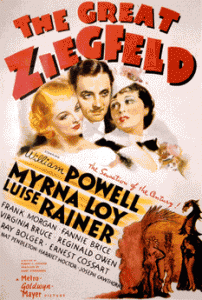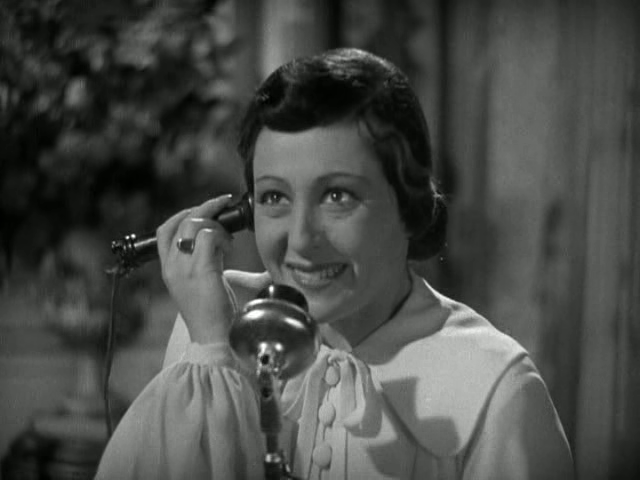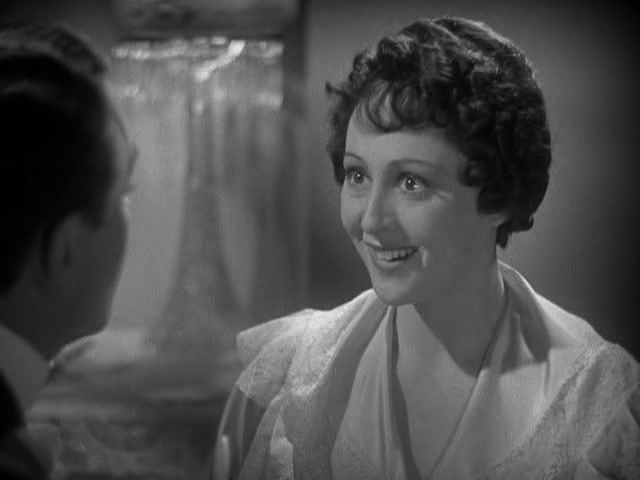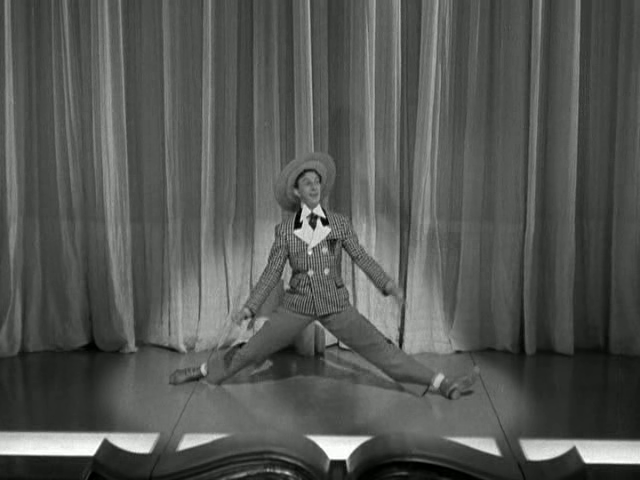Great Ziegfeld, The (1936)
“He’s up one day and down the next. If he got $10,000 tomorrow, he’d spend it on the girl he happened to like tomorrow night.”
|
Synopsis: |
|
Genres, Themes, Actors, and Directors:
Review:
Indeed, we ultimately learn frustratingly little about this larger-than-life historical figure, a man who had only been dead for a few years at the time of the film’s release, and whose widow (Billy Burke) was notoriously invested in ensuring that her beloved husband’s name not be sullied in any way. There actually seems to be an overarching fear of placing any of the characters here (most still alive) in too bad a light — with the exception of Virginia Bruce’s “Audrey Dane” (a stand-in for Ziegfeld’s real-life lover, Lillian Lorraine), who bears the brunt of the narrative’s bitchiness factor. The real aim of the film, it seems, was to tap into audience members’ nostalgia for the Follies, since at that time, they were not all that far removed from people’s lived experiences; for today’s viewers, however, what passed as entertainment back then is simply puzzling in its unintentional banality. DVD Savant asserts that “most of the big numbers here are ugly in the extreme”, and that “grandiosity has never seemed so hollow” — sentiments which accurately capture my own feelings when watching one overblown production piece after another, all seemingly meant simply to wow audiences with sheer spectacle. But there’s very little “there” there. Other than a snippet of Fanny Brice singing “My Man”, and a pre-Wizard of Oz Ray Bolger performing a dance that shows ample evidence of why casting agents thought he would be perfect playing a limp-limbed scarecrow, the numbers really aren’t that memorable. Indeed, by the final one, I found myself simply distracted, with thoughts running through my head like, “Oh — there’s a woman in a drum majorette outfit dancing in front of a row of trained dogs. How strange.” Luise Rainer’s Oscar-winning performance as Ziegfeld’s first wife, Anna Held (a.k.a. ‘The Viennese Teardrop’), is a primary reason film fanatics may be curious to see this movie — especially given that Rainer won an unprecedented second Oscar in a row the following year (for The Good Earth), then virtually disappeared from movies altogether; she’s a bit of an enigma. With that said, while she “had beauty, charm, and talent” (as stated by Peary in Alternate Oscars), audiences today will likely concede that “her characterization of Held as a sweet, emotional, indecisive, and insecure outsider wavers from being adorable to being irritating”. Peary further argues that her “celebrated phone call scene in which [she] pretends to be happy when she congratulates Ziegfeld on his [second] marriage… is a shameless scene that would have gotten an audience reaction no matter which actress played it”. This is all true — and yet I’ll admit to finding myself somewhat transfixed whenever Rainer was on-screen; she did possess a strangely magnetic (if, indeed, mildly irksome) personality, and it’s a shame her cinematic career was so erratic after this. Redeeming Qualities and Moments:
Must See? Links: |






2 thoughts on “Great Ziegfeld, The (1936)”
Skip it. More or less a huge snore of a bore. ~three whole hours’ worth.
When even the dependably professional William Powell seems bored, you know things are bad. But at least he’s *still* attempting reasonable conviction. Which is more than can be said for Rainer, poor thing, playing a one-note level of over-indulgence.
A potential highlight of the film, indeed, is Brice’s rendition of ‘My Man’. In the film’s most bizarre move, we see her clearly gearing up for what promises to be a moving sequence. And, in not quite 30 seconds, focus is off of her – and gone!
This is one of the worst biopics of anyone in showbiz – ever.
Not a must. I admit I have said that every best picture should be a once must for historical reasons, but this unexciting three hour film joins a list of best picture winners that just don’t thrill me: Broadway Melody, Cimarron, The Greatest Show on Earth, and a few others that just left me wanting it to end.
The film is not truly awful, but what passed for grandiose entertainment now seems especially dated in so many ways (plus it is always alarming to see black face). The dramatic performances are average, and only some of the entertainment pieces truly hold up.
I’m glad I saw it, but merely to check a box off a list.